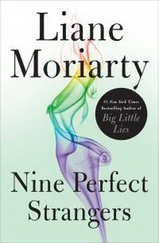It vexed him now. He felt done with it. “I simply loathe her,” he said quietly.
“But you shouldn’t loathe anything.”
He made a nervous gesture.” I loathe her because I’ve told you all this while we’re walking here!”
“Guy, really!”
“She’s everything that should be loathed,” he went on, staring in front of him. “Sometimes I think I hate everything in the world. No decency, no conscience. She’s what people mean when they say America never grows up, America rewards the corrupt. She’s the type who goes to the bad movies, acts in them, reads the love-story magazines, lives in a bungalow, and whips her husband into earning more money this year so they can buy on the installment plan next year, breaks up her neighbor’s marriage—”
“Stop it, Guy! You talk so like a child!” She drew away from him.
“And the fact I once loved her,” Guy added, “loved all of it, makes me ill.”
They stopped, looking at each other. He had had to say it, here and now, the ugliest thing he could say. He wanted to suffer also from Anne’s disapproval, perhaps from her turning away and leaving him to finish the walk by himself. She had left him on one or two other occasions, when he had been unreasonable.
Anne said, in that distant, expressionless tone that terrified him, because he felt she might abandon him and never come back, “Sometimes I can believe you’re still in love with her.”
He smiled, and she softened. “I’m sorry,” he said.
“Oh, Guy!” She put out her hand again, like a gesture of beseeching, and he took it. “If you’d only grow up!”
“I read somewhere people don’t grow emotionally.”
“I don’t care what you read. They do. I’ll prove it to you if it’s the last thing I do.”
He felt secure suddenly. “What else can I think about now?” he asked perversely, lowering his voice.
“That you were never closer to being free of her than now, Guy. What do you suppose you should think about?”
He lifted his head higher. There was a big pink sign on the top of a building: TOME xx, and all at once he was curious to know what it meant and wanted to ask Anne. He wanted to ask her why everything was so much easier and simpler when he was with her, but pride kept him from asking now, and the question would have been rhetorical anyway, unanswerable by Anne in words, because the answer was simply Anne. It had been so since the day he met her, in the dingy basement of the Art Institute in New York, the rainy day he had slogged in and addressed the only living thing he saw, the Chinese red raincoat and hood. The red raincoat and hood had turned and said: “You get to 9A from the first floor. You didn’t have to come all the way down here.” And then her quick, amused laugh that mysteriously, immediately, lifted his rage. He had learned to smile by quarter inches, frightened of her, a little contemptuous of her new dark green convertible. “A car just makes more sense,” Anne said, “when you live in Long Island.“The days when he was contemptuous of everything and courses taken here and there were no more than tests to make sure he knew all the instructor had to say, or to see how fast he could learn it and leave. “How do you suppose anybody gets in if not through pull? They can still throw you out if they don’t like you.” He had seen it her way finally, the right way, and gone to the exclusive Deems Architectural Academy in Brooklyn for a year, through her father’s knowing a man on the board of directors.
“I know you have it in you, Guy,” Anne said suddenly at the end of a silence, “the capacity to be terribly happy.”
Guy nodded quickly, though Anne was not looking at him. He felt somehow ashamed. Anne had the capacity to be happy. She was happy now, she had been happy before she met him, and it was only he, his problems, that ever seemed to daunt her happiness for an instant. He would be happy, too, when he lived with Anne. He had told her so, but he could not bear to tell her again now.
“What’s that?” he asked.
A big round house of glass had come into view under the trees of Chapultepec Park.
“The botanical gardens,” Anne said.
There was no one inside the building, not even a caretaker. The air smelled of warm, fresh earth. They walked around, reading unpronounceable names of plants that might have come from another planet. Anne had a favorite plant. She had watched it grow for three years, she said, visiting it on successive summers with her father.
“Only I can’t ever remember these names,” she said.
“Why should you remember?”
They had lunch at Sanborn’s with Anne’s mother, then walked around in the store until it was time for Mrs. Faulkner’s afternoon nap. Mrs. Faulkner was a thin, nervously energetic woman, tall as Anne, and for her age as attractive. Guy had come to be devoted to her, because she was devoted to him. At first, in his mind, he had built up the greatest handicaps for himself from Anne’s wealthy parents, but not one of them had come true, and gradually he had shed them. That evening, the four of them went to a concert at the Bellas Artes, then had a late supper at the Lady Baltimore Restaurant across the street from the Ritz.
The Faulkners were sorry he wouldn’t be able to stay the summer with them in Acapulco. Anne’s father, an importer, intended to build a warehouse on the docks there.
“We can’t expect to interest him in a warehouse if he’s building a whole country club,” Mrs. Faulkner said.
Guy said nothing. He couldn’t look at Anne. He had asked her not to tell her parents about Palm Beach until after he left. Where would he go next week? He might go to Chicago and study for a couple of months. He had stored away his possessions in New York, and his landlady awaited his word as to whether to rent his apartment or not. If he went to Chicago, he might see the great Saarinen in Evanston and Tim O’Flaherty, a young architect who had had no recognition yet, but whom Guy believed in. There might be a job or two in Chicago. But New York was too dismal a prospect without Anne.
Mrs. Faulkner laid her hand on his forearm and laughed. “He wouldn’t smile if he got all New York to build over, would you, Guy?”
He hadn’t been listening. He wanted Anne to take a walk with him later, but she insisted on his coming up to their suite at the Ritz to see the silk dressing gown she had bought for her cousin Teddy, before she sent it off. And then, of course, it was too late for a walk.
He was staying at the Hotel Montecarlo, about ten blocks from the Hotel Ritz, a great shabby building that looked like the former residence of a military general. One entered it through a wide carriage drive, paved in black and white tile like a bathroom floor. This gave into a huge dark lobby, also tile floored. There was a grotto-like barroom and a restaurant that was always empty. Stained marble stairs wound around the patio, and going up them behind the bellhop yesterday, Guy had seen, through open doorways and windows, a Japanese couple playing cards, a woman kneeling at prayer, people writing letters at tables or merely standing with a strange air of captivity. A masculine gloom and an untraceable promise of the supernatural oppressed the whole place, and Guy had liked it instantly, though the Faulkners, including Anne, chaffed him about his choice.
His cheap little room in a back corner was crammed with pink and brown painted furniture, had a bed like a fallen cake, and a bath down the hall. Somewhere down in the patio, water dripped continuously, and the sporadic flush of toilets sounded torrential.
When he got back from the Ritz, Guy deposited his wristwatch, a present from Anne, on the pink bed table, and his billfold and keys on the scratched brown bureau, as he might have done at home. He felt very content as he got into bed with his Mexican newspapers and a book on English architecture that he had found at the Alameda bookstore that afternoon. After a second plunge at the Spanish, he leaned his head back against the pillow and gazed at the offensive room, listened to the little ratlike sounds of human activity from all parts of the building. What was it that he liked, he wondered. To immerse himself in ugly, uncomfortable, undignified living so that he gained new power to fight it in his work? Or was it a sense of hiding from Miriam? He would be harder to find here than at the Ritz.
Читать дальше












